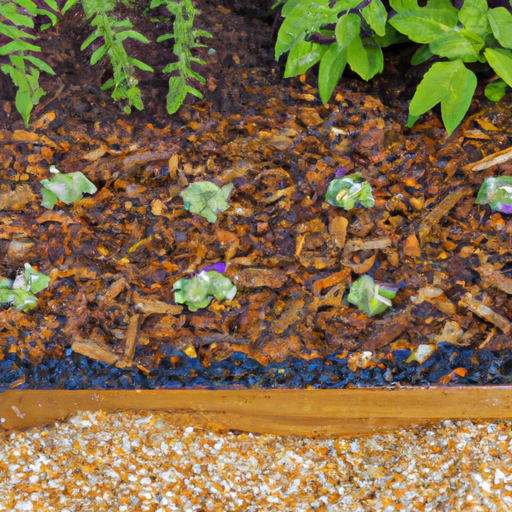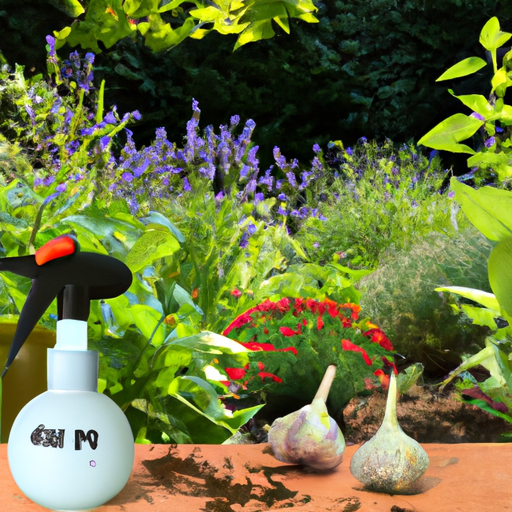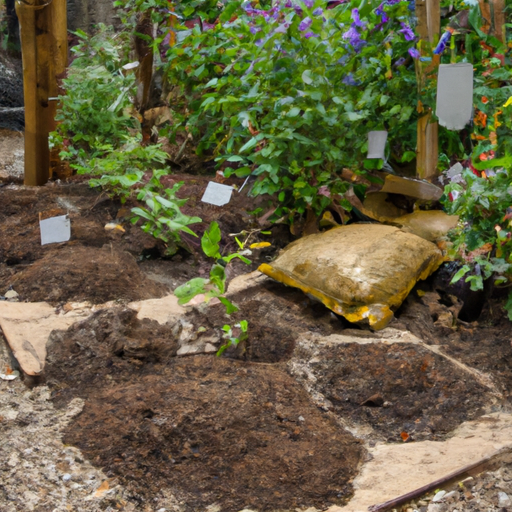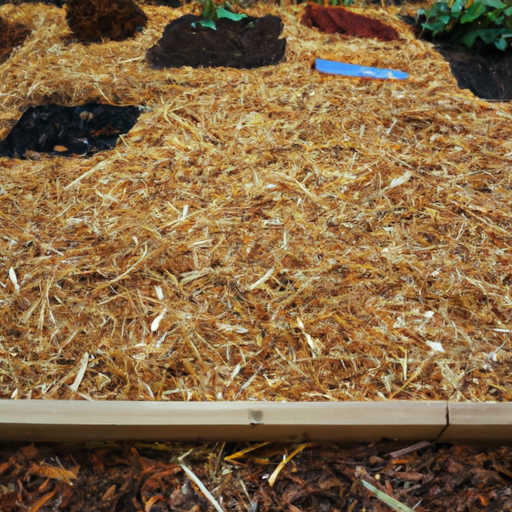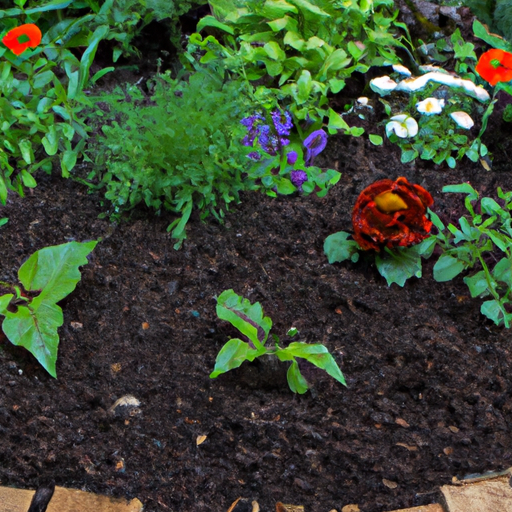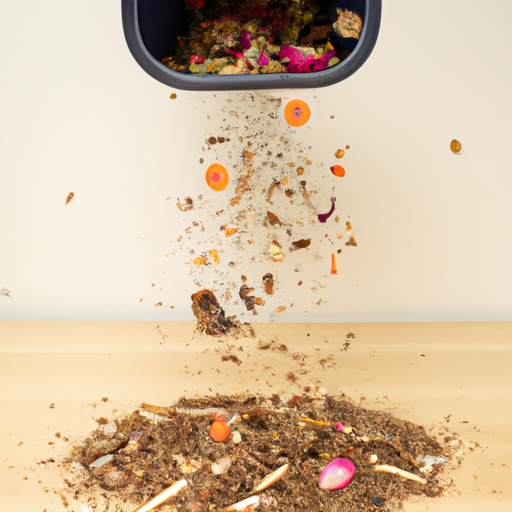As a Master Gardener, one of the most important lessons I have learned is the significance of mulching in water conservation.
Mulch is simply any material that covers the soil surface and helps to retain moisture. It also has numerous other benefits such as suppressing weed growth, moderating soil temperature, and adding nutrients to the soil.
In areas where water is scarce or expensive, like many parts of California and Arizona, mulching can be a game-changer for gardeners looking to keep their plants healthy while minimizing water usage.
Even in regions with ample rainfall, using mulch is still critical for efficient irrigation. In this article, we will explore why mulching your garden is essential for conserving water and how you can get started with it today.
The Benefits Of Mulching For Your Garden
Like the icing on a cake, mulching is an essential finishing touch for any garden.
As a Master Gardener, I cannot stress enough the importance of mulching techniques to maintain efficient water conservation in your garden.
Mulch serves as a protective layer that helps retain moisture and regulate soil temperature by preventing evaporation.
However, it’s crucial to note that not all types of mulch are created equal.
The best types of mulch vary depending on the plants you have in your garden.
Some plants thrive with organic materials such as leaves or wood chips, while others benefit from inorganic options like gravel or stones.
By choosing the right type of mulch for each plant, you can ensure optimal growth and nutrient uptake while conserving water.
How Mulch Helps Retain Moisture In The Soil
As we discussed in the previous section, mulching is an excellent way to enhance your garden’s health and productivity. Besides keeping weeds at bay, it also helps retain moisture in the soil, which is crucial for efficient water conservation. But how does mulch achieve this?
There are various types of mulch you can choose from – organic or inorganic; however, they all work similarly by creating a barrier between the soil surface and the air, preventing evaporation. Some common organic materials include grass clippings, leaves, straw, wood chips, composted manure, and shredded bark. On the other hand, inorganic options comprise plastic sheets or gravel.
Mulching techniques vary depending on the type of material used. For instance, if using organic matter such as leaves or straw that decompose over time and add nutrients to the soil while suppressing weed growth, apply two to three inches deep layers around plants’ bases without covering stems or trunks. However, avoid piling too much up against tree trunks since this could lead to rotting.
In contrast, non-organic materials like black plastic films should be laid flat on top of the soil after planting crops with holes punched through them where necessary.
In summary, mulching provides numerous benefits beyond retaining moisture levels in your garden beds: it enriches soils with essential nutrients released during decomposition; reduces erosion and compaction; improves plant growth rates by regulating temperature fluctuations throughout hot summer months when water demands increase significantly due to heat stress-induced transpiration loss! So why not try out different mulching techniques today for more robust plants tomorrow?
Suppressing Weed Growth With Mulch
As a Master Gardener, I cannot stress enough the importance of weed prevention in your garden.
One effective method to suppress weed growth is through mulching.
Mulch not only conserves water but also acts as a barrier against weeds.
There are various types of mulches available such as organic and synthetic ones.
Organic mulches include straw, leaves, grass clippings, wood chips, and bark while synthetic ones are made up of plastic sheets or fabrics.
Both types have their advantages and disadvantages depending on your preference and needs.
When choosing which type of mulch to use, it’s important to consider its durability and how well it retains moisture.
By employing the right type of mulch that suits your garden’s conditions, you can effectively prevent weed growth without using chemicals that may harm beneficial insects or other plants nearby.
Remember that suppressing weed growth with mulch isn’t just about aesthetics; it’s an essential part of maintaining a healthy garden ecosystem.
Moderating Soil Temperature With Mulch
As we continue our journey through the benefits of mulching, let’s delve a bit deeper into how it can help moderate soil temperature.
Mulch acts as a natural insulator, keeping the soil warm in cooler temperatures and cool during hotter months. This not only helps regulate plant growth but also conserves water by reducing evaporation rates.
Mulching techniques vary depending on your garden needs, so be sure to choose the right type for your plants. Organic materials such as leaves, straw or wood chips work well for vegetable gardens while rock or gravel may be more suitable for succulents or cacti.
Remember that choosing the right mulch is essential; using improper types could hinder plant growth rather than aid them. So take some time to consider which mulch types are best suited to your garden before making any decisions.
Adding Nutrients To Soil With Mulch
Now that you know the benefits of mulching for water conservation, let’s dive into how it can also enrich your soil.
Mulch is not only a great way to retain moisture, but it can also provide essential nutrients to the plants in your garden bed. By using organic mulch options such as leaves, grass clippings, or compost, you can add valuable organic matter back into the soil.
As the mulch breaks down over time, it releases nitrogen and other important minerals into the ground which are then absorbed by plant roots. In addition to providing nutrients, mulch helps regulate soil temperature and prevent erosion.
It’s important to note that different types of organic materials will break down at different rates and have varying effects on soil composition. Some popular mulches for soil enrichment include shredded bark or wood chips, straw, and mushroom compost.
Be sure to choose an option that works best for your specific garden needs and consider layering multiple types of mulch for maximum benefit. With regular additions of quality organic matter through mulching, you’ll be well on your way to creating healthy vibrant soils that produce abundant crops year after year!
Frequently Asked Questions
What Types Of Mulch Are Best For Water Conservation In Gardens?
When it comes to mulching for drought tolerance and water conservation, the type of mulch you choose can make a big difference.
Organic mulches like shredded leaves, straw, or grass clippings are great choices because they break down over time and improve soil health while retaining moisture.
Inorganic mulches like rocks or gravel don’t break down but can still help conserve water by reducing evaporation from the soil surface.
Ultimately, the best choice depends on your garden’s specific needs and conditions.
Consider factors like climate, soil type, and plant species when selecting a mulch that will provide both functional benefits and aesthetic appeal.
Can Mulching Also Help Reduce The Need For Watering Plants?
Mulching benefits are numerous, and one of the most important is its ability to reduce the need for watering plants.
Using mulch as a protective layer on top of soil provides many advantages such as trapping moisture in the ground, preventing evaporation from the sun’s rays, improving drainage, and reducing soil erosion.
The technique of adding organic or non-organic materials like compost, leaves, grass clippings or bark chips can also help conserve water by keeping plant roots cool during hot weather conditions.
In addition to that, using mulching techniques can save time and money spent on hand-watering your garden while ensuring it remains healthy all year round.
How Often Should Mulch Be Applied To A Garden For Optimal Water Conservation?
To achieve optimal water conservation, it is important to consider mulching frequency and seasonal considerations.
Mulch should be applied at least twice a year with a thickness of 2-3 inches for best results in retaining soil moisture.
However, during periods of heavy rainfall or extreme heat, additional applications may be necessary.
It’s also essential to choose the right type of mulch based on your garden’s specific needs and climate conditions.
By following these guidelines, you can ensure that your plants receive sufficient hydration while reducing the need for frequent watering, ultimately resulting in healthier and more vibrant vegetation.
Can Mulch Attract Pests Or Rodents To The Garden?
Just like a bee drawn to nectar, pests and rodents are naturally attracted to gardens. However, mulch can be an effective tool in preventing these unwanted visitors from wreaking havoc on your precious plants.
An effectiveness analysis of various pest prevention techniques has shown that using organic mulch such as straw or leaves can deter insects and small animals by creating an uncomfortable environment for them.
Additionally, being vigilant about removing any fallen fruit or debris from the garden can also discourage potential invaders. So while it’s important to consider the benefits of mulching for water conservation purposes, it’s equally important to understand how it can contribute to a healthy and pest-free garden.
Are There Any Downsides Or Risks Associated With Using Mulch For Water Conservation In Gardens?
While mulching is an effective way to conserve water in gardens, there are a few downsides and risks associated with it.
One major concern is that certain types of mulch can attract pests or rodents to the garden, which can damage plants and cause other problems.
Additionally, some gardeners worry about the effects of mulch on soil health over time.
For those who want to avoid these issues but still conserve water in their gardens, there are several mulch alternatives available, such as gravel or stones.
It’s important for gardeners to weigh the benefits and drawbacks before choosing whether or not to use mulch for water conservation purposes.
Conclusion
In conclusion, as a Master Gardener, I highly recommend mulching your garden for efficient water conservation. By using organic materials such as straw or bark chips, you can help retain moisture in the soil and reduce the need for frequent watering.
Picture yourself strolling through your lush garden on a hot summer day knowing that your plants are thriving with just the right amount of hydration. But remember to apply mulch regularly and avoid piling it too high around plant stems to prevent attracting unwanted pests or rodents.
With proper application, mulching is an easy and cost-effective way to conserve water while promoting healthy growth in your garden. So why not give it a try? Your plants (and wallet) will thank you!
